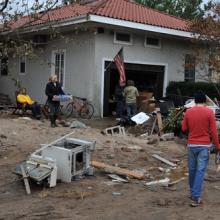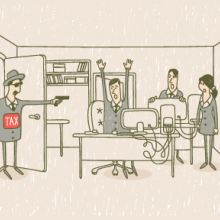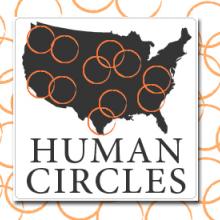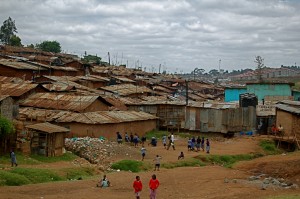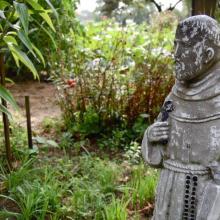wealthy
A crisis like the coronavirus pandemic reveals who we are as individuals and society. When push comes to shove, as the saying goes, which side of us will have the final say?
Crazy Rich Asians begets notions of Christianity in hyper-capitalist countries, satirizing Christianity by showing it as a tool for the wealthy to cozy up with those even more wealthy, accruing large doses of social capital with sprinkles of gospel. The movie, coming from author Kevin Kwan’s personal experience, thus provides a damning window into looking at how Christianity functions today in the world’s richest countries.
When’s the last time you received a warning from the pulpit about the dangers of wealth? How often have you heard “Woe to the Rich” as theme of a sermon? Perhaps no part of Jesus’ message has been rejected so completely by U.S. Christianity as the dire warning against wealth and how it leads us astray. Instead, we admire the rich, envy them, and aspire to become one of the rich.
I stood at the bread shelf in the neighborhood grocery store, trying to decide which loaf I should buy. Tough decision. I looked at all the types of bread and went back and forth many times.
Which one would be best for communion? I didn’t know. I’d never had to make this choice.
Our pastor was at a conference for the weekend. As the associate minister, I would be presiding over the Sunday service for the first time. Before he left, we went over the details of all that had to be prepared.
He reminded me that I needed to buy the bread for communion.
Uh, I hadn’t thought about that. Where do you get it?
“The grocery store will do just fine.”
So there I was, looking over the loaves, wondering which one looked the most, well, communion-y. Maybe that pretty, round Tuscan loaf. Wait, maybe the nice Jewish rye over there. My wry sense of humor kicked in. Jesus would smile over that, right? Being Jewish and all.
No, better not …
I finally picked an Italian loaf — mainly because it was big and it looked pretty and it was on sale. I put it in my basket and headed for the self-checkout line.
When I scanned the loaf, the automated voice asked: “Do you have any coupons?” No, no communion coupons. Not today.
I swiped my credit card and was reminded that my purchase would earn me a few cents off my next gasoline purchase. How’s that for transubstantiation — bread transformed into bonus points?
I just returned from Davos, Switzerland, where the annual meeting of the World Economic Forum is held each year. Leaders from business, government, and civil society all gather here to engage each other, make connections, and, hopefully, make progress on the mission statement of the WEF: “Committed to Improving the State of the World.”
I reflected on that mission statement last year in my remarks to all the attendees at the event’s closing session. I said the deeper meaning of leadership is sacrifice and not just skills — and that the most included people on the planet who were sitting in that famous Congress Hall will be morally evaluated by their relationship to the most excluded, who, of course, are never in that grand auditorium. Many individual leaders in attendance wanted to discuss that challenge further, and those conversations continued this year.
One session this year that drew many people off site was called “Struggle for Survival” — an intense simulation of how 3 billion people in our world actually live each day. Half of the global population exists on less than $2 per day. Run by the Crossroads Foundation, Struggle for Survival was a much more emotional experience than the rest of the sessions at Davos.
My wife, Joy, and I participated in this simulation, and the people running it told us that several CEOs seemed quite affected by the very powerful dramatization of real-world injustice and poverty. It took people out of their heads into stunning revelations of how the excluded really live, prompting feelings of guilt, pain, anger, empathy, and compassion — and then a call to commitment.
Right-wing politicians are fond of saying we need more Christian influence in American political life.
I don’t disagree with that. But I wonder if they have any idea what they are asking. For a nation guided by Christian principles would bear scant resemblance to their political agenda.
Take immigration, for example. Jesus practiced radical welcome, not the restrictive legalistic barriers envisioned by conservatives, and certainly not the denigration of dark-skinned immigrants and the unleashing of armed posses along the Rio Grande.
God’s people, after all, began as immigrants and refugees. God saw them as a “beacon” to all nations.
A recent report by OXFAM offered some sobering data about both the concentration and flow of wealth in the world today. A few key points, also summarized by a new business article on The Atlantic website , include:
- The richest 85 people in the world control as much wealth as the poorest 3,000,000,000 people;
- Nineteen out of 20 “G20” countries are experiencing growing income inequality between rich and poor;
- In the United States in particular, 95 percent of the post-financial-crisis capital growth has been amassed by the richest 1 percent of Americans;
- While domestic income inequality continues to grow, the income tax rates for wealthiest Americans have steadily dropped.
My first reaction to seemingly immoral concentrations of wealth, and the systems that enable it, is anger and a compulsion to call them out, to change them and to distribute the world’s treasures evenly among all of God’s people.
But what if we need the insanely wealthy to realize a kingdom-inspired vision for our world?
I played the New York lottery for the first time last week.
My $2 ticket didn't win the $588 million payout – surprise, surprise – but it did buy me several minutes of musing, most of it instructive, some of it enjoyable.
I quickly ran out of spending ideas – slightly larger apartment, new computer, clothes for my wife, a car to replace the two we sold when moving to Manhattan. I realized I couldn't even spend the income on a lottery bonanza, unless I started buying things I don't need or particularly want.
...
In the end, I liked the idea of financial security, but saw little to be gained from sudden wealth. In fact, given the misery that tends to befall lottery winners, I might have dodged a bullet by not winning.
After this brief fantasy, I wondered more than ever why the wealthy work so hard to avoid taxes and other obligations of citizenship. Even though their effective taxes are lower than they were during the Reagan years and far lower than during the great prosperity of the post-World War II era, the wealthy are lobbying fiercely to pay even less in taxes. Once again, they seem willing to crash the government for everyone, rather than pay their share of its support.
NEW YORK — It's a short walk from Ground Zero to the Staten Island Ferry terminal.
If you're a dedicated tourist, you can see where a terrorist attack occurred on 9/11 and then hop a ferry to see where Hurricane Sandy devastated Staten Island's oceanfront last month.
Sad to say, but that's exactly what many tourists are doing. Instead of going to Staten Island to help traumatized residents, they go to gawk. Then they go back to Manhattan for lunch and holiday shopping.
This is what happens when people lose a basic sense of obligation to one another. It no longer seems sane or necessary to be charitable. Instead, people feel justified in looking away from need. They feel disconnected from neighbors who are suffering. When the storms of life hit, they call themselves “makers” and dismiss the “takers” as lazy.
Winston Churchill famously said, “Show me a young Conservative and I’ll show you someone with no heart. Show me an old Liberal and I’ll show you someone with no brains.”
Churchill was out of power by the time his countrymen, George Harrison and the Beatles, released “Taxman” on their Revolver album in 1966. New Prime Minister Harold Wilson had introduced a 95-percent supertax on the wealthiest Brits, including the Beatles. Harrison’s song was and remains a perfect Right-wing caricature of the Left. I can almost hear Bill O’Reilly singing an attack on President Obama’s plan to “ask the wealthiest Americans to pay a little more.”
There has been a lot of anger levied at the very wealthy since the Occupy movement began back in September. There is no doubt that much of this anger is justified – righteous indignation, if you will.
The ways that people have become extremely wealthy have often been corrupt or immoral, whether or not they are technically "legal." Part of the reason that the Occupy movement sprang up was because people felt that there were different rules for "us and them." People who lost millions of dollars in what was effectively high-stakes gambling were pardoned with little more than a slap on the wrist, while regular families lost everything in a crisis they had no hand in.
As I say, there has been, and still is, much anger. But out of that anger must come something new, something tangible and real.
Do we want to be the kind of America that faces an historic deficit and chooses to extend $690 billion in tax cuts for the wealthiest 2 percent of our citizens while cutting $650 billion in aid to children who need special education, student aid, and additional resources for low-income schools?
Do we want to be the kind of America that protects $44 billion in subsidies for oil and gas companies while cutting $47 billion in energy grants to help poor families heat their homes in the winter?
Right now the wealthiest Americans are wealthier than they’ve ever been and people living beneath the poverty line make up a larger slice of the American pie than they have since the Great Depression.
Is that really what we want? Really?
Scripture constantly should be challenging our assumptions about our lives and in every aspect of society. Transformation is needed on a personal and also a political level. Scriptural priorities shouldn't be glossed over in order to protect political ideologies and comfort zones.
If we believe that what Jesus taught remains just as relevant today as it did when he physically walked among us, then it should still be a comfort to those on the margins of society and offensive to the wealthy and powerful. That doesn't mean that the wealthy and powerful can't be good and faithful followers of Christ, but Jesus did warn them that their walk will be a hard one. Wealth and power bring unique and difficult temptations ... If you never feel uncomfortable when you read the Gospels then you aren't paying attention.
Today (Oct. 4) Christians around the world celebrate the life of St. Francis of Assisi, one of the bright lights of the church and one of the most venerated religious figures in history.
The life and witness of Francis is as relevant to the world we live in today as it was 900 years ago. He was one of the first critics of capitalism, one of the earliest Christian environmentalists, a sassy reformer of the church, and one of the classic conscientious objectors to war.
When President Barack Obama laid out his deficit plan Monday, he wasn't just trying to sell a policy. When he pressed for tax hikes on the rich and announced, "This is not class warfare," he was trying to exorcise a demon that has bedeviled the Democratic Party for decades and in the process deprive the Republicans of one of their trustiest weapons. The reaction from the right was swift and sure: "Class warfare!"
Not every Christian who shares my concern for the poor has the same view on policy or politics. But, here is a prejudice I am not going to back away from.
To be a follower of Christ is to be biased for the poor.
In life, we all have our biases. Some of them are natural tendencies or inclinations and others are habituated. Our culture tells us to be biased -- in a deferential sense -- towards those who can pay us back or who can look out for us in return. Society tells us to get in with the strong and the powerful because they will give us strength and power in return.
Jesus teaches something very different.
More than 140 prominent Protestant leaders from 12 Latin American countries have signed an "open letter to the Christian churches of the United States," asking American Christians to stand with "the most vulnerable members of US society" who would be affected by proposed budget cuts to the social safety net.
Citing the Circle of Protection as a positive Christian witness, the signers also expressed their dismay. "We view with deep concern recent decisions in the United States that will add to the suffering of the most vulnerable members of US society," the letter read. It was signed by a broad array of Latin American religious communities, including leaders of the Latin American Council of Churches, the United Bible Society of Latin America, evangelical councils and alliances in Peru, Ecuador, Honduras, Argentina, Brazil, Bolivia, and Uruguay, the Fellowship of Evangelical Churches (CONELA), the Association of Reformed and Presbyterian Churches of Latin America (AIPRAL), Micah Network, Indigenous Association of Peruvian Amazonia, and the Latin American Biblical University in Costa Rica.
Picture this: Hundreds of thousands of women, men, and children plod across barren cracked earth. Dead cows and human corpses litter the roads, revealing to us evidence of two things: 1) the hottest summer on record in Somalia, which caused the worst drought and famine in 60 years; and 2) twenty years of a truly failed Somali government swallowed up in cycles of violence.
Picture this: Posturing politicians claim to stand up for the rights of Americans, even as they hijack the proverbial steering wheel of America. They hold a proverbial gun to the heads of every American, and say outright that they'd have no problem driving us all off a proverbial cliff if millionaires and billionaires don't remain protected from raised taxes, and if we don't cut more programs that protect working and poor people.
On Monday the Dow Jones industrial average fell 634.76 points; the sixth-worst point decline for the Dow in the last 112 years and the worst drop since December 2008. Every stock in the Standard and Poor's 500 index declined.
It is easy to blame bipartisan bickering for the impasse that led to Standard and Poor's downgrading of the American debt, and in turn the vertiginous fall of the Dow. This bickering -- this substitution of ideology for reason, of egotism for compassion and responsibility on the part of lawmakers -- is a national disgrace; but while it failed to fix the problem, we must realize that it did not cause it. The cause -- and potential for a significant renewal -- lies much deeper.
So let's allow ourselves to ask a fundamental question: what's an economy for?

As Christians concerned about poverty, it is time to turn our full attention to the injustices of an "offshore tax system" that enables corporations and the wealthy to dodge taxes and impoverish countries around the world.
As members of Congress in the United States debate deep and painful budget cuts, people of faith should raise our voices against an unfair system that enables profitable U.S. corporations to dodge taxes, depleting an estimated $100 billion from the U.S. Treasury each year. Instead of cutting $1 trillion over the next decade from programs that assist the poor and ensure greater opportunity, we should eliminate these destructive tax gimmicks.
Recent reports show that aggressive tax dodgers such as General Electric, Boeing, and Pfizer, avoid billions in taxes a year. They use accounting gymnastics to pretend they are making profits in offshore subsidiaries incorporated in low- or no-tax countries like the Cayman Islands, thereby reducing their tax obligations in the United States. This system is unfair to domestic businesses that have to compete on an un-level playing field.








